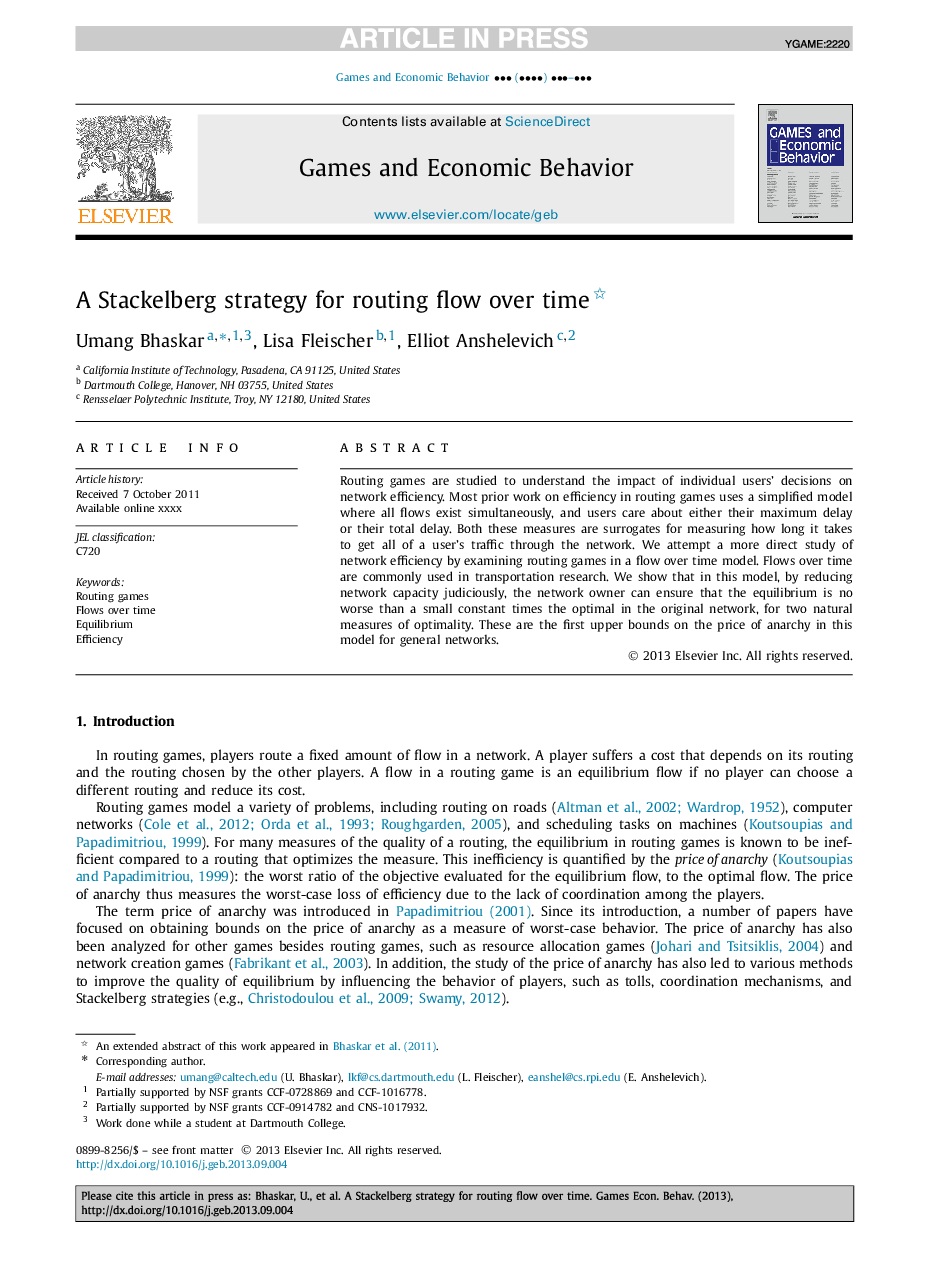| Article ID | Journal | Published Year | Pages | File Type |
|---|---|---|---|---|
| 5071595 | Games and Economic Behavior | 2015 | 16 Pages |
Abstract
Routing games are studied to understand the impact of individual users' decisions on network efficiency. Most prior work on efficiency in routing games uses a simplified model where all flows exist simultaneously, and users care about either their maximum delay or their total delay. Both these measures are surrogates for measuring how long it takes to get all of a user's traffic through the network. We attempt a more direct study of network efficiency by examining routing games in a flow over time model. Flows over time are commonly used in transportation research. We show that in this model, by reducing network capacity judiciously, the network owner can ensure that the equilibrium is no worse than a small constant times the optimal in the original network, for two natural measures of optimality. These are the first upper bounds on the price of anarchy in this model for general networks.
Related Topics
Social Sciences and Humanities
Economics, Econometrics and Finance
Economics and Econometrics
Authors
Umang Bhaskar, Lisa Fleischer, Elliot Anshelevich,
